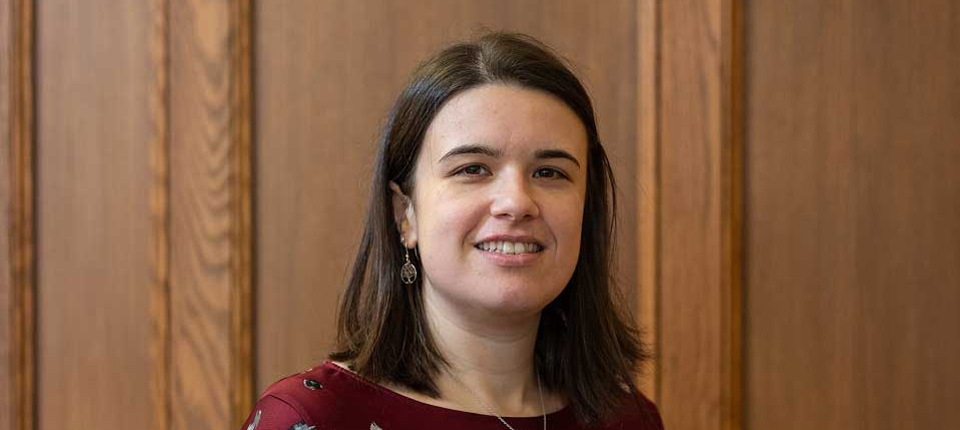Sarah Woods
Research Student

Research theme: Sustainable materials
Materials Engineering is the study of what things are made of and how their properties can be optimised for an application. It is a cross-disciplinary subject which makes studying it interesting and diverse.
It is common knowledge that human activity is having a negative effect on the planet. With everything around, us being made from some sort of material, an improvement in the materials we use could have a big impact on improving this situation.
The majority of commercially available plastics are currently made from depleting fossil fuel-based feedstocks. As well as the environmental problems associated with fossil fuels there is a finite time that they will be available, so alternatives are being explored. Lactic acid is produced when carbohydrates are fermented and has the potential to be one of many renewable feedstocks. The more information we gather about these materials, the quicker the world can shift away from its dependence on environmentally damaging fossil fuels, which will protect future generations of all living things.
My inspiration to work in research was sparked when I worked in plastics recycling. A big part of my job was sorting through plastic and preparing it for processing. This can be really challenging due to the vast variety of plastics available. So, it was here that I had my first taste of research in a non-academic setting. A PhD will allow me to continue researching but at a much higher level.
Post 16 Education: A Levels in Music and Drama and Theatre studies, Level 3 BTEC National Award in Performing Arts (Dance)
Higher Education: BEng in Materials Engineering with a Foundation in Science and Engineering
Sarah's experience as a student
When I started university, I lived in on-campus accommodation. The hall committee organised fresher's week events to encourage everyone to meet. This was such a fun time that helped me to make friends and settle into my new life. A challenge I encountered was the adjustment back into education. I overcame this by accessing university facilities, such as the Mathematics Learning Support Centre, and by seeking support from teaching staff and fellow students. I am particularly grateful for the friends that I have made during my time at university. Friends that I will remain in contact with, no matter where they are in the world.
Career
I am a final year PhD student in the Department of Materials at Loughborough University making plastics from renewable resources. During the last year of my undergraduate, I considered either starting work or doing a Masters or PhD degree. When considering a PhD, I enquired about current PhD opportunities and asked PhD students and academic staff to reflect on their experiences. After I finished my undergraduate, I was doing a summer internship for a company based in the Department of Materials, when I found out about a PhD opportunity with a new academic in sustainable polymers. Although, an unhelpful voice in my head told me that PhDs are only for ‘intelligent people.’ I jumped at the chance and discovered that all that self-doubt was unwarranted.
My undergraduate degree was essential in getting a PhD. The subject matter has also been useful, although I have learned chemistry that I did not previously cover.
Sarah’s advice
I would advise young people not to worry if they have not yet chosen a specific career path. When I finished college, I did not know what I wanted to do. So, before attending university I experienced a few different jobs and considered careers in performing arts and sign language interpreting. Although it has taken time to discover my own career path, I know that I needed time to grow and realise what I enjoyed doing. I am thrilled with the career path I chose.
Loughborough University offers undergraduate BEng and MEng degrees in:
Materials Science and Engineering / Automotive Materials / Bioengineering / Biomaterials